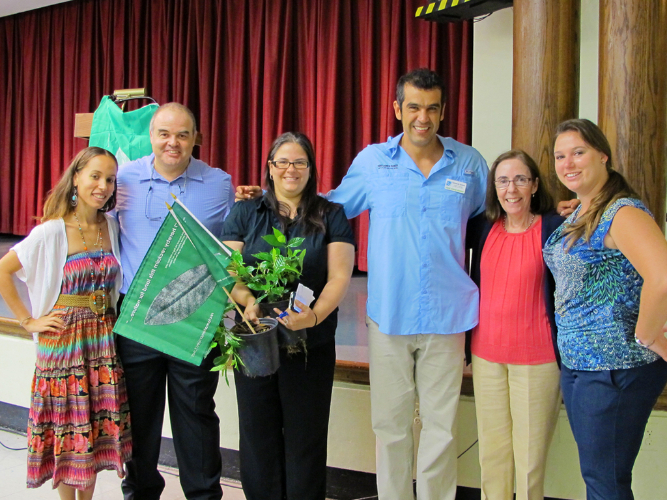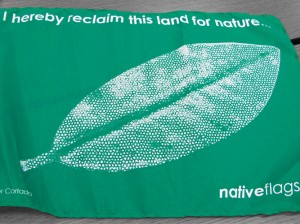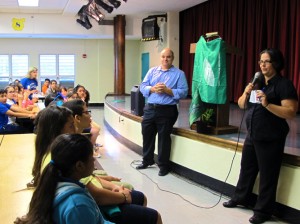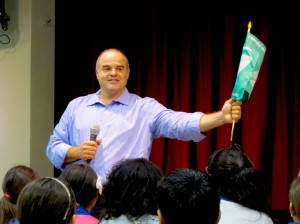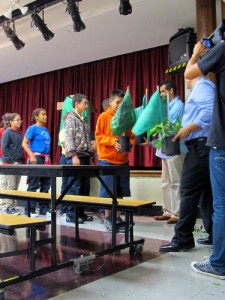On the morning of June 4, CARTA artist-in-residence Xavier Cortada joined with Fernando Bretos, Curator of Ecology and Field Conservation at the Miami Science Museum and Ana Rijo-Conde, Eco-Sustainability Officer for the Miami-Dade School system, to speak with 50 graduating 5th graders at Riverside Elementary in Little Havana. Cortada discussed Native Flags, his participatory eco-art project based at Deering Estates. Cortada, who created Native Flags in order to teach young students to be environmentally proactive, continually seeks ways to integrate the environment and the arts. One aspect of his vision is having participants place a green flag next to a tree they plant in their front yard to reclaim it for nature. The green flag serves as a conspicuous reminder of their eco-action and as a catalyst for conversation to engage neighbors in helping grow the native tree canopy down their block.
Riverside Elementary students discussed with Cortada and the others how to become young ambassadors for the environment and eco-arts. At the event they were each given a wild coffee tree, native to Florida, which produces flowers that bees use in pollination. Planting and caring for the trees serve as an integral part of the program, so participants learn the responsibilities that every individual faces in maintaining nature. The students were then asked to go home and create a green flag out of an old t-shirt, draw a leaf on it, and place the flag on their front lawn as a sign of their involvement and artistic participation in Native Flags.
Bretos also discussed the science behind reforestation, to educate the students as they care for the local environment. The collaboration between FIU, the Miami Science Museum, and the Deering Estate (which maintains its own expansive collection of flora and fauna), allows the Native Flags project to reach out to students throughout Miami-Dade County. This event is yet another instance of the College of Architecture + The Arts’ faculty engaging in community partnerships to better serve our students, organizations, and ecosystems.
Get involved! For more information on Native Flags and its presence both locally and around the world click here.

